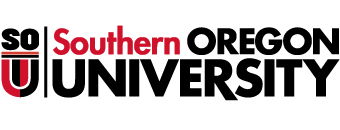- be_ixf; php_sdk; php_sdk_1.4.18
- 9 ms
- iy_2026; im_01; id_22; ih_10; imh_17; i_epoch:1.76910587643E+12
- ixf-compiler; ixf-compiler_1.0.0.0
- py_2025; pm_10; pd_08; ph_06; pmh_57; p_epoch:1.75993184344E+12
- link-block; link-block_link-block; bodystr
- pn_tstr:Wed Oct 08 06:57:23 PST 2025; pn_epoch:1.75993184344E+12
- 0 ms
- be_ixf; php_sdk; php_sdk_1.4.18
- https://sou.edu/sustainability-center/real-food-commitment/
- https://sou.edu/sustainability-center/real-food-commitment/
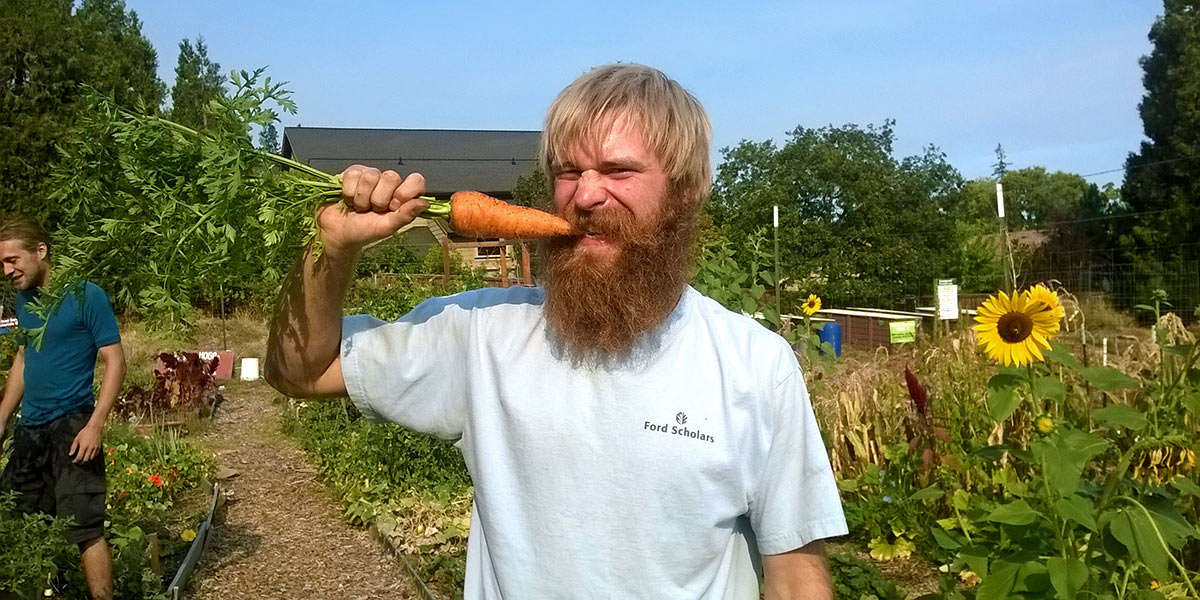
The SOU Real Food Campus Commitment
“Real food truly nourishes producers, consumers, communities, and the earth.”
In October 2018 Southern Oregon University President Linda Schott signed the SOU Real Food Campus Commitment with the goal for the University to serve 20% “real food” on campus by 2023. Real food is food that meets specific qualifications in categories of ecologically sound, humane, fair, or local/regionally sourced. The purpose of the Real Food Commitment at SOU is to divert money away from industrial farms and heavily processed foods and in turn move more money into organically grown, sustainable food systems. This is with the ultimate goal of providing students a healthy and well-rounded dining experience on campus.
The SOU Real Food Campus Commitment is an initiative of the Student Sustainability Team, in close partnership with SOU Dining employees, the Farm, and other campus and community partners.
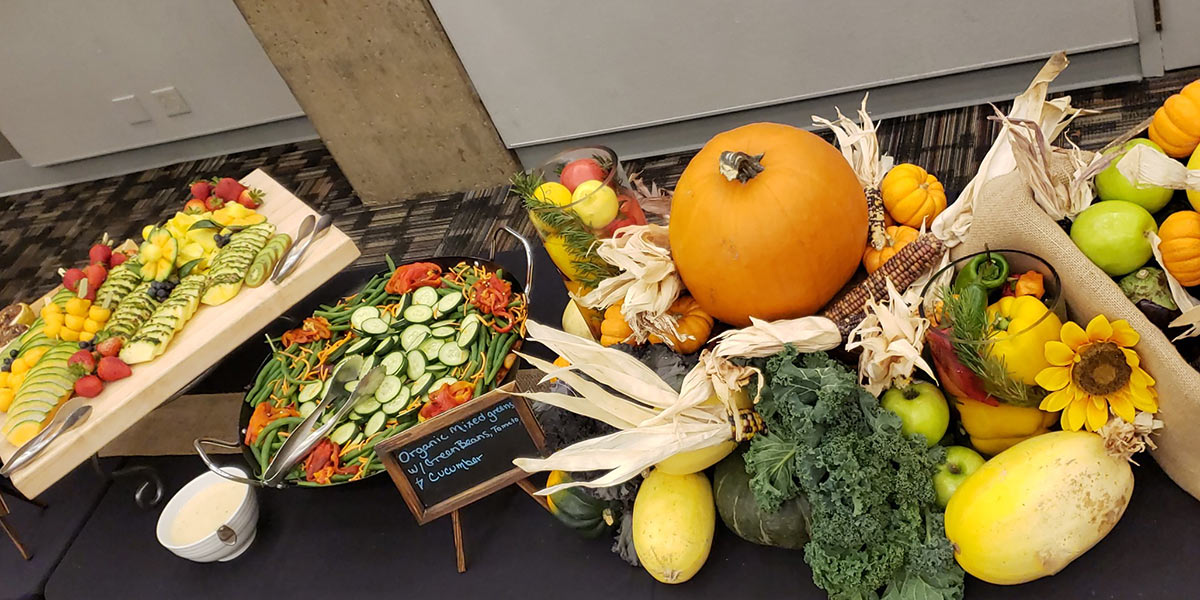
How it Works: The Real Food Calculator
The Real Food Challenge is a national non-profit organization that trains students to make Real Food product shifts on campuses across the U.S. The Real Food Challenge developed the real food calculator and Real Food guide after extensive research on the wide array of food certification organizations, labels, and standards. The Calculator and Real Food guide are the primary tools for tracking and analyzing food purchases on campuses committed to the Real Food Challenge.
The Real Food Calculator and the Real Food guide are used to analyze all food purchases on campus. Using the Real Food guide, student researchers with the Student Sustainability Center look at two representative months (October and February) and categorize food purchases as Real (local, fair, ecologically sound, or humane) or not Real. The campus Real Food percentage is equal to the sum of money spent on Real Food divided by total purchases.
In October 2019, SOU completed our first year of the Real Food Calculator, and found the campus to be at 9% Real Food, nearly half-way to our goal: check out this news story for more details. Unfortunately, subsequent years of analysis were less promising. The 2019-20 Calculator found 8% Real Food, and in 2020-21 with the onset of COVID-19 our campus dropped to 4% Real Food. Current Real Food researchers are hard at work rejuvenating our Real Food commitment efforts and still plan to reach 20% by 2023.
—— PANDEMIC ——
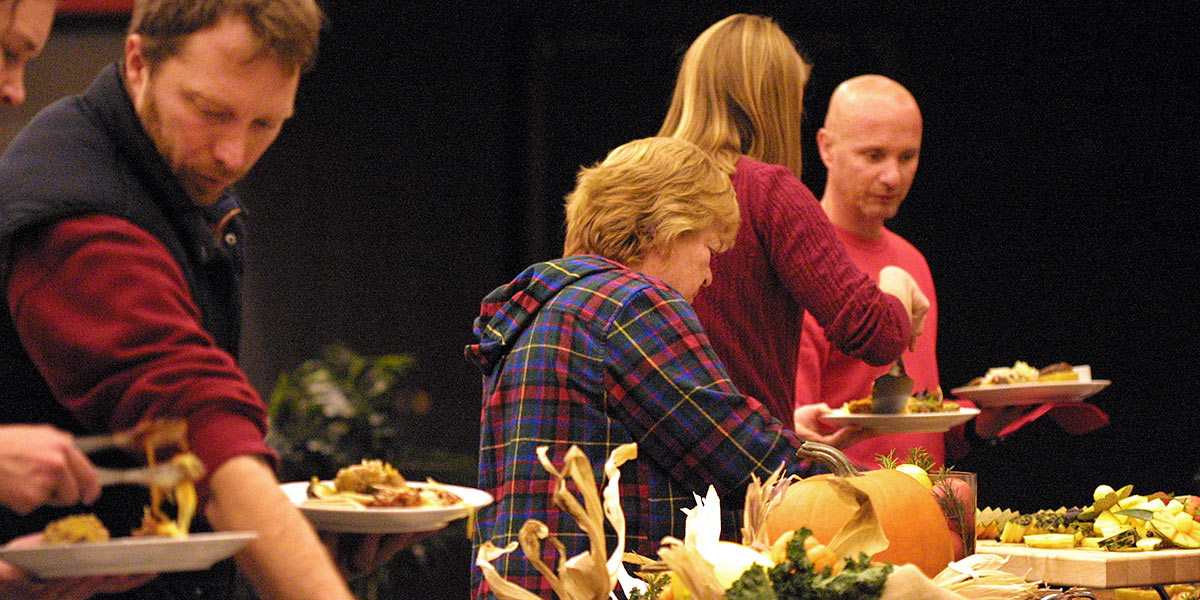
What You Can Do
There are many ways to help shift SOU’s campus food system to be more sustainable and fair!
- Become a Real Food Research Intern with the Student Sustainability Team; information and openings will be available on Handshake.
- Keep an eye out for Real Food events throughout the school year
- Consider purchasing produce from the Farm; all their food is sustainably produced by members of the campus community. More information here: https://farm.sou.edu/produce-from-the-farm/
- Choose Real Food whenever you can! Staff from the Sustainability Team and SOU Dining are working to label and advertise foods in dining locations that qualify as Real.
Listed below are a few items available primarily in The Landing but also at Elmos and Southern Grounds:
- Cafe Mam Coffee (USDA Organic & Fair Trade Certified)
- Yachak Yerba Mate (USDA Organic)
- Kevita (USDA Organic)
- Brew Dr. (USDA Organic)
- Humm Kombucha (USDA Organic)
- Endangered Species Chocolate (Fair Trade Certified)
- RAD Chocolate (USDA Organic)
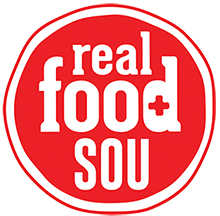
Contact the Sustainability Center
SOU Student Sustainability Center
Stevenson Union Rm 312
1250 Siskiyou Blvd.
Ashland, OR 97520
541.552.8346
ecos@sou.edu
